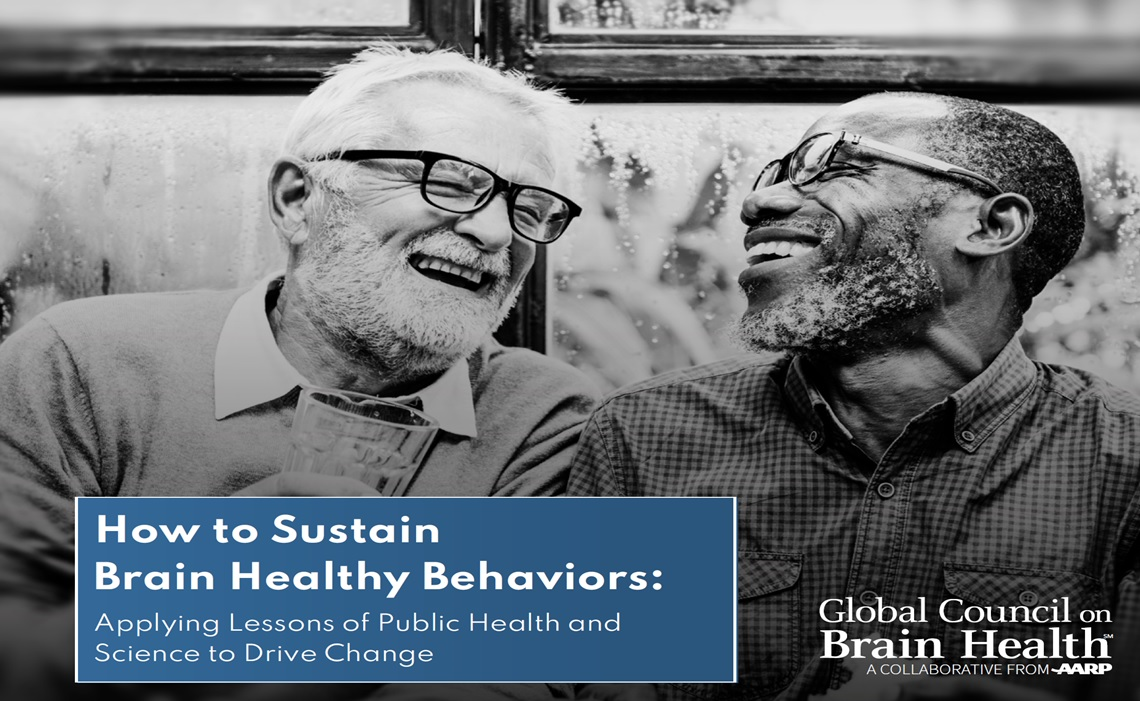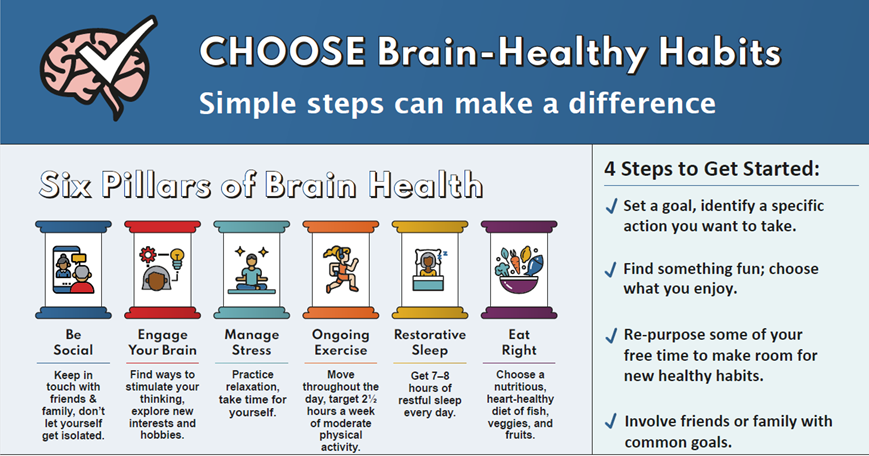The Global Council on Brain Health (GCBH) convened experts from around the world to examine how society can do more to support behavior – and changes in behavior – that promote brain health.
In this report, we share what we have learned about how to persuade and motivate people to maintain brain-healthy lifestyles, and how community policies can be shaped to promote this vital goal. While we encourage people to make good decisions, the GCBH concluded that an effective strategy to enhance brain health should focus not only on individuals but on the social and environmental factors that influence their behavior.
Following months of deliberations, the GCBH agreed on a multi-faceted approach to behavior change that focuses on individuals, communities and policymakers. This approach is designed to ensure that critical stakeholders are equipped with the knowledge, motivation and confidence to drive sustained change in lifestyles and decision-making.
We describe why implementing programs designed to promote brain health for older adults makes good health and economic sense for communities and societies as well as individuals. GCBH experts advise individuals to set specific goals, be realistic about what they choose, and approach their goals step by step. We encourage community-based organizations to create opportunities for peer-to-peer coaching. And we urge policymakers to raise public awareness that people can take steps to help themselves. These and many other recommendations along with a framework for achieving change for individuals, community organizations and policymakers are provided in the final report approved by the GCBH Governance Committee.
Our experts further agree on the need to address disparities in health and access to care that undermine the cognitive well-being of underserved communities including many African Americans and Hispanics. Hearing loss, hypertension, obesity, and depression are among the health issues that may be linked to cognitive decline and should be properly managed with access to health care.
A chasm remains between what researchers are discovering about brain health and how little this knowledge has been applied for the public good. Progress will require the combined actions of individuals and communities, reinforced by public policies that facilitate healthy lifestyles.
By applying lessons of public health and science, we can improve brain health for the benefit of individuals, communities and countries around the world. Our report lays out the steps needed to achieve this goal.
To learn more, read Habits That Are Good for the Brain — and How to Make Them Stick



